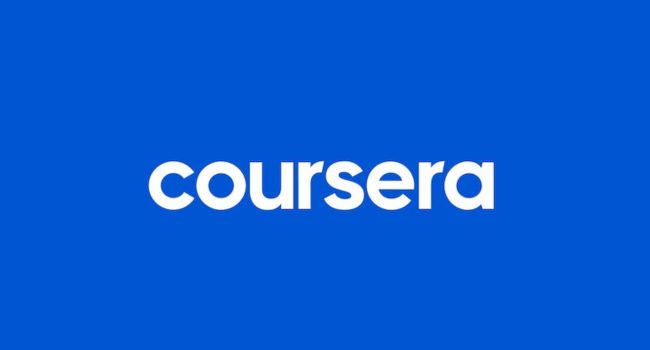
Last updated on December 7th, 2023 at 12:16 pm
Coursera, a top MOOC platform, partners with renowned institutions like Stanford and Princeton, providing global learners access to affordable or free courses. Financial aid available for courses no longer free.
Lately, we have been searching for business analysis courses, and we discovered a significant selection. These courses typically offer a well-rounded learning experience, including quizzes, videos, recommended readings, final exams, and discussion forums. The content equips learners with the necessary knowledge to propose efficient business solutions, handle stakeholder relationships, manage job-related stress, and take on leadership roles.
Coursera offers a variety of courses related to business analysis, software requirements, and client needs from the University of Alberta.
The University of Minnesota provides a course called Prototyping and Design, focusing on low-fidelity user interface prototypes. Financial Aid is available for this course.
Ludwig-Maximilians-Universität München (LMU) offers Competitive Strategy, which utilizes game theory to teach competitive advantage for businesses.
The University of South Wales offers Introduction to Systems Engineering, covering the basics of systems development and successful complex systems’ development.
The University of Illinois provides the Process Improvement course, teaching effective analysis and process improvement strategies using Six Sigma and lean management principles.
Pennsylvania State University and Vanderbilt University offer courses on Creativity, Innovation & Change and Leading Strategic Innovation in Organizations, respectively.
Duke University offers the Reasoning, Data Analysis, and Writing course, focusing on essential skills for day-to-day interactions with stakeholders.
UCI provides Effective Problem-Solving and Decision-Making, helping learners develop critical thinking skills. They also offer Creative Problem Solving.
Cave Western Reserve University’s Inspiring Leadership through Emotional Intelligence course focuses on building leadership skills and managing stress.
UCI’s Art of Negotiation and the University of Michigan’s Successful Negotiation courses teach negotiation skills for organizational success.
For communication courses, consider Introduction to Public Speaking from the University of Washington and High-Impact Business Writing from UCI.UCI offers Work Smarter, Not Harder: Time Management for Personal & Professional Productivity.
If a course is currently unavailable, you can add it to your watchlist for future notifications.
Coursera embodies a learner-centered approach by offering students the flexibility to chart their own learning journey. They can freely enroll in courses and decide whether to fully immerse themselves in the content or explore specific topics selectively, without any impact on their grades or evaluations.
Whether taking courses for credit or non-credit, students can enhance their understanding across various subjects. As a result, Coursera serves as a supportive supplementary resource for students facing challenges in traditional classrooms. With access to faculty and peer-led forums, learners can seek assistance in a stress-free environment.
Coursera is renowned as one of the leading providers of MOOCs (Massive Open Online Courses). It has forged partnerships with 140 universities, presenting a vast selection of over 1,500 courses covering various disciplines, including engineering, medicine, computer science, social sciences, foreign languages, and the humanities. While all courses are available for free, learners also have the choice to obtain a certificate of completion for a fee, ranging from $29 to $99.
Background: Coursera had its inception in 2011 as a for-profit initiative by two computer scientists from Stanford University. The idea took shape after a prosperous pilot of an artificial intelligence course conducted at Stanford, which saw participation from students in more than 190 countries. During its inaugural year, Coursera experienced a significant influx of 680,000 students enrolling in courses offered by prestigious institutions like Princeton, Stanford, University of Michigan, and the University of Pennsylvania.
Access: Coursera can be easily accessed through any web browser. Additionally, there are dedicated mobile apps for smartphones and tablets running on Apple, Android, and Windows operating systems. For certain courses, a flash plug-in may be required. To access the full course content, including lectures, videos, and supplementary materials, learners must be registered users.
Coursera recognizes the challenges faced by students with unpredictable or limited internet bandwidth in certain areas. As a solution, it offers the option to download lecture videos and course materials for offline viewing.
While the majority of courses are available in English, the platform is progressively expanding its offerings in other languages. These include Chinese, French, Russian, Spanish, Portuguese, Turkish, Ukrainian, German, Arabic, Italian, Japanese, and Hebrew.
For technical support, learners can avail assistance through the learner help center and participate in peer-led help forums. However, there is no dedicated help desk or phone number for addressing technical issues.
Coursera aligns with the ISTE Standards, particularly the Empowered Learner standard, by providing students the autonomy to define their own learning objectives through course selection and engagement. Moreover, the platform fulfills the Global Collaborator standard by fostering interactions among students from over 190 countries in course discussion forums.
COST We previously stated, all courses on Coursera are available for free. However, if students desire a certificate of completion, there are associated fees that vary depending on the course.
: Navigating Coursera requires minimal time investment as the menus, visual displays, and icons are user-friendly and intuitive. Students can effortlessly switch between multiple enrolled courses based on their preferences. All courses come with pre-recorded lectures and downloadable materials, such as lecture notes, quizzes, presentation slides, exams, readings, links to external content, and access to discussion forums. These forums enable students to interact with peers and course faculty, engaging in scholarly discussions. Students can progress through the courses at their own pace. However, for college credit or a certificate of completion, adherence to set dates specified by the course faculty is necessary.
Accessibility: Coursera takes various measures to accommodate learners with special needs. Transcripts and subtitles are available for students with hearing difficulties, and a significant portion of the content is accessible through screen reading software. Learners with learning disabilities can save their work as drafts before submission, and quizzes and exams can be retaken without penalties.
Privacy: Coursera‘s detailed privacy policy outlines the collection of non-personal and personally identifiable data. The platform tracks user activity, including most and least frequently visited pages, through cookies and web beacons. Users can restrict cookie access within their browser settings. Personally identifiable information, such as names, email addresses, survey responses, and credit card details, is logged and assessed by Coursera for marketing purposes. For European students, Coursera complies with the Privacy Shield Framework, limiting the amount of personally identifiable information collected.
Terms of Use: To register and participate in courses, students must be at least 13 years old and abide by U.S. copyright laws. Students cannot profit from or claim course materials as their own. By registering, students provide consent for research studies conducted by Coursera or its university partners. They agree to hold Coursera and partners free from liability resulting from course participation. Sharing passwords or engaging in harmful activities, such as spamming, is prohibited.
Equity: Coursera‘s model offers a self-paced, high-quality educational opportunity with top-notch faculty to students worldwide. The option of obtaining certificates of completion makes university education accessible to populations in remote or resource-limited areas, including war-torn regions.
Coursera and the SAMR Model:
Substitution: Coursera offers online courses that learners can complete at their preferred pace. Students have the option to choose whether to complete a course without facing any negative consequences.
Augmentation: Coursera provides learners with the opportunity to complement their existing educational experiences without the pressure of final grades.
Modification: Through Coursera, students can interact with peers from diverse countries, including regions with traditionally low participation in online education.
Redefinition: Coursera‘s platform grants access to renowned scholars and educators, offering a valuable opportunity for learners who might not have the means or opportunity to attend prestigious universities. This access enhances the learning environment, ensuring students receive relevant and rigorous course content.
Learning Activities:
- Neuroscience: A nurse practitioner considering a shift from rheumatology to neurology decides to take a Duke University course on neurophysiology. This course will help her assess whether she can bridge her current clinical expertise to the content taught in the course.
- Emotional Intelligence: High school students preparing for college, juggling various roles as top students, athletes, and emerging leaders, can benefit from an award-winning happiness course jointly offered by the Indian School of Business and the University of Texas at Austin. Although designed by business professors, the course has universal relevance and value. The syllabus promises that completing the course will lead to happiness and addresses questions like why successful individuals may not be as happy as they could be. Students learn about the “7 Deadly Happiness Sins” and the “7 Habits of the Highly Happy,” resulting in a transformative experience for them, boosting their mood and sense of purpose.
- Organizational Leadership: A service organization dealing with turmoil among its executive leadership seeks solutions from a group of mid-career employees. These employees are eager to learn new leadership skills to navigate through chaos and conflict successfully. They find a course at Case Western University on appreciative inquiry, which focuses on building organizational strengths rather than dwelling on weaknesses. This course can help them develop the competencies needed to lead the organization effectively during this challenging time.
How to Use Coursera:
- Open your web browser and visit www.coursera.org
- Create a free account by filling out the online form.
- Check your email for a verification link from Coursera and click on it to verify your account.
- Sign in using your account credentials, and you will be directed to the user home page.
- Follow the steps provided to search and enroll in a course of your interest.
- Courses are categorized by discipline, or you can use keywords to search for specific topics.
- Choose a course, explore the course page, review the syllabus, and read the instructor’s biography.
- If interested, click on the green “enroll” button to enroll in the course.





